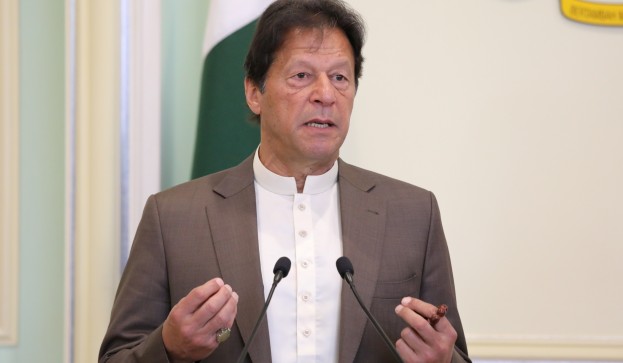Pakistan to buy Malaysian palm oil to compensate for India’s withdrawal

Pakistan will buy more palm oil from Malaysia, Prime Minister Imran Khan said on Tuesday, to try and compensate after top buyer India put curbs on Malaysian imports last month amid a diplomatic row.
India imposed general restrictions on refined palm oil imports, and informally asked traders specifically to stop buying from Malaysia, the world’s biggest producer of the edible oil. Sources said the move was in retaliation after Malaysia criticised India’s new religion-based citizenship law and its policy on Kashmir.
Malaysian Prime Minister Mahathir Mohamad said on Tuesday that he discussed palm oil with Khan who was on a visit to Malaysia and that Pakistan had indicated it would import more from Malaysia.
“That’s right, especially since we noticed India threatened Malaysia for supporting the Kashmir cause, threatened to cut palm oil imports,” Khan told a joint news conference, referring to India’s Muslim-majority region of Kashmir.
“Pakistan will do its best to compensate for that.”
India is a Hindu-majority country while Malaysia and Pakistan are mainly Muslim. India and Pakistan have been mostly hostile to each other since the partition of British India in 1947, and have fought two of their three wars over competing territorial claims in Kashmir.
Pakistan may have bought around 135,000 tonnes of Malaysian palm oil last month, a record high, India-based dealers who track such shipments told Reuters on condition of anonymity.
The figure is close to estimates of 141,500 tonnes from Refinitiv, which says sales to India in January may have plunged 80 per cent from a year earlier to 40,400 tonnes.
Malaysia will release official export data on Monday.
Pakistan bought 1.1 million tonnes of palm oil from Malaysia last year, while India bought 4.4 million tonnes, according to the Malaysian Palm Oil Council.
India has repeatedly objected to Mahathir speaking out against its move last year to strip Kashmir’s autonomy and make it easier for non-Muslims from neighbouring Muslim-majority Bangladesh, Pakistan and Afghanistan to gain citizenship.
At the news conference, Mahathir did not refer to Kashmir but Khan did.
“The way you, PM, have stood with us and spoken about this injustice going on, on behalf of Pakistan I really want to thank you,” Khan said.
He also said he was sad he could not attend a summit of Muslim leaders in Malaysia in December. Saudi Arabia did not attend the summit, saying it was the wrong forum to discuss matters affecting the world’s Muslims and Khan belatedly pulled out from attending.
Some Pakistani officials, unnamed because they were not authorised to speak to the media, said at the time that Khan pulled out under pressure from Saudi Arabia, a close ally of Pakistan, though local media reported his officials denied that was the reason for his absence.
“Unfortunately our friends, who are very close to Pakistan as well, felt that somehow the conference was going to divide the ummah,” Khan said, using the Arabic word for the Muslim community but not mentioning Saudi Arabia by name.
“It is clearly a misconception, as that was not the purpose of the conference.”
